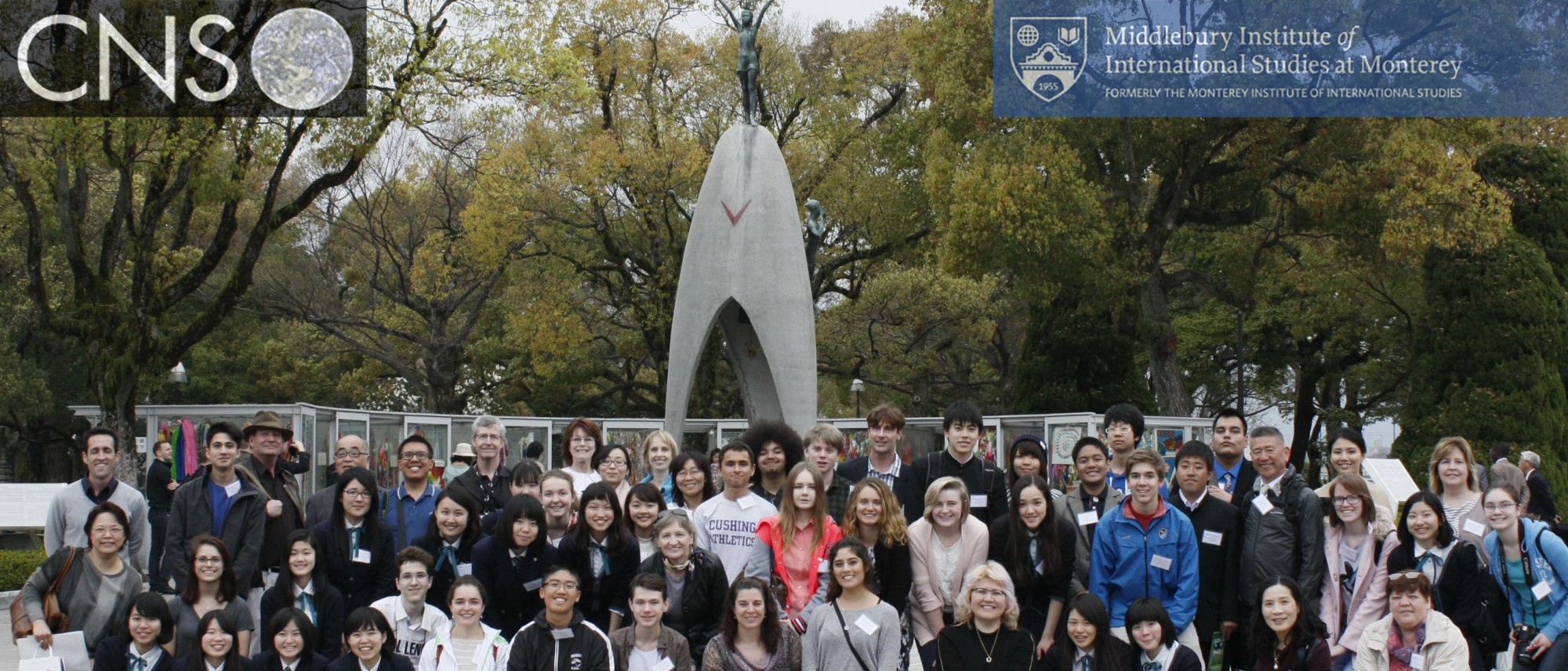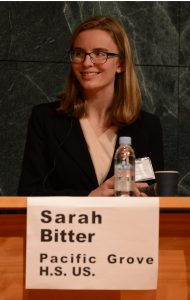Pacific Grove High School, CA
The nature of nuclear weapons turns the nature of humans against us, using what creates us to destroy us. This distinctive destructive power of nuclear weapons makes them an unprecedented and unmatched weapon, and has convinced me that we must reach a world without nuclear weapons to reach a world with peace.
Yet, nuclear weapons escaped my attention for the majority of my life. My past thinking about nuclear weapons focused on the past. I learned about how the United States used nuclear weapons, talked of how the times were at home, and contemplated the moral reasoning back then. I rarely learned about, talked of, or contemplated nuclear weapons in the present tense, and never ventured into the future.
Only the CIF program turned my attention to nuclear weapons, and I am extremely grateful. Not only did the program start my interest in and education about nuclear weapons, but it also has continued to enrich my understanding of the subject. Even after working on two projects focused on nuclear weapons, I found myself further developing my knowledge of and position on nuclear weapons from my experience at this year’s conference in Nagasaki.
What struck me most from the conference was the detail of how gamma radiation from nuclear weapons destroys certain sections of DNA in cells. This fact may seem insignificant or lackluster in comparison to all of the information presented at the conference, but I had not known exactly how the explosion had caused problems in genes before—how nuclear weapons actually damage our DNA, the very thing that makes us us. Not only can nuclear weapons obliterate us, they can change us.
From my experience with the CIF program, I am certain that nuclear weapons should never be used again, and I am interested in becoming a lawyer to help the non-proliferation cause. I currently participate in Mock Trial, a legal club at my school, in which I learn how to present and defend legal arguments, and the CIF program has given me a purpose with which to use those skills.
I believe that individuals can work together to create change and that we can reach a world without nuclear weapons. To achieve that world, however, we need to ensure that the youth of the world—our future leaders—understand how devastating and threatening nuclear weapons are and consider nuclear weapons in the context of the past, present, and future. I fear that many young people are just like I was before the CIF program, looking solely into the past, with little knowledge of nuclear weapons and not enough motivation to abolish them.
In my history class, I was a witness to this lack of focus on nuclear weapons. My teacher held a discussion on World War II and the reasoning behind nuclear weapons and, through the development of the discussion, had the class choose whether to support or oppose the use of nuclear weapons. When the teacher wrote the benefits and drawbacks of nuclear weapons on the board, there were far more benefits than drawbacks. I thought that there was little hope for my class viewing nuclear weapons objectively. Then, however, several of my classmates (including myself) shared our perspectives on nuclear weapons, and by the end of the period, the majority of my class opposed the use of nuclear weapons. The majority of the information shared, however, was based on the pacifist beliefs of my classmates, and not actual knowledge of nuclear weapons. With further education on nuclear weapons, however, my fellow classmates—and the youth of the world—will develop their understanding and knowledge to build a more informed perspective on nuclear weapons, if not one that opposes their use.
This education will bring change, and programs like the CIF will continue to educate and seek that change. I have faith that the people of the world can reach a world without nuclear weapons, and I am determined to be a part of that solution.



